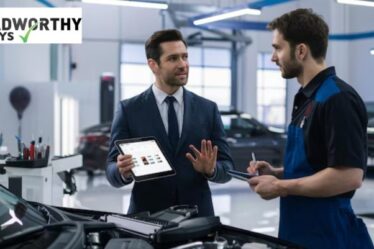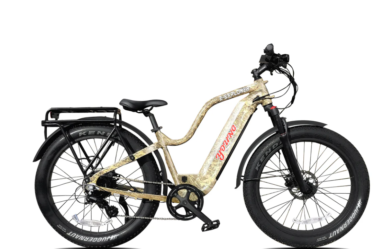
The new car market is a lively ecosystem, perpetually shaped by an interplay of tech innovations, consumer behaviors, and global events. For car enthusiasts poring over brochures and industry professionals plotting strategies, deciphering the currents of the market is akin to reading a celestial map. What are the bright stars leading us into the future of driving? In this exploration, we’ll chart the most significant findings, from the surging rise of electric vehicles to the techno-revolutions enveloping our dashboards, to the lasting imprints of an unprecedented pandemic.
Evolving Consumer Preferences: Electric Sparks and Green Machines
The Thundering Quiet of Electric Engines
Recent years have seen a remarkable shift in consumer preference toward green technologies. Once seen as a niche market, electric vehicles (EVs) are now a mainstay of many car manufacturers’ line-ups. Improved battery technology, increased driving ranges, and a greater variety of model types have all contributed to the growing popularity of EVs.
To sustain the momentum, the coming years will witness further investment in infrastructure, which remains a significant barrier to widespread EV adoption. We predict a steady incline as initiatives like government incentives and the commitment of major car brands to fleet electrification gradually steer more drivers toward the silent, clean revolution.
The Sustainability Surge
The wave of eco-consciousness sweeping the globe is affecting not just the types of vehicles being purchased but also the way they are manufactured and marketed. Consumers are increasingly demanding transparency about a car’s environmental footprint and expect manufacturers to be environmentally responsible.
Hybrid and plug-in hybrid vehicles are crucial transitional technologies for consumers not yet ready to make the full leap to EVs. These models offer the best of both worlds, combining the benefits of electric and internal combustion engines. Sustainable materials, such as recycled plastics and plant-based composites, are also on the rise, as the industry seeks innovative ways to reduce its environmental impact.
Technological Advancements in New Cars: Steering Into the Future
In the Driver’s Seat of Innovation
The car of today is a mobile computer, a veritable tech playground on wheels. Innovations such as autonomous driving, advanced driver-assistance systems (ADAS), and in-car connectivity are making vehicles safer, smarter, and more enjoyable to drive. High-definition virtual displays, personal voice assistants, and an array of apps are transforming our driving experience, inching us closer to a future where the act of driving itself is optional.
Innovations like V2X (Vehicle-to-Everything) communication are set to redefine how cars interact with the world around them, promising not only safer roads but also more efficient transportation. AI algorithms that learn driver habits, climate control preferences, and even predict maintenance issues are becoming more commonplace, creating a personalized cocoon for the modern motorist.
Tech Titans at the Hub
The integration of Artificial Intelligence and the Internet of Things in new cars is not just about gimmicks. They are the building blocks of a smarter, more connected vehicle ecosystem. Tech companies are leveraging their expertise in software and analytics to redefine mobility solutions. This can be seen in partnerships between traditional automakers and tech giants to create joint ventures for electric engines, battery technology, and autonomous driving systems.
The automotive industry is on the cusp of a dramatic change, where vehicles will be defined by their software as much as by their hardware. The winners will be those who can harness data insights from these technologies to provide unique services and enhanced customer experiences.
The Shift in Sales and Marketing Strategies: Digital Roads and Showrooms
Revving Up the Digital Ledger
The new car market has embraced digital transformation with zeal. The traditional showroom is no longer the primary battleground for sales; instead, an online presence and e-commerce capabilities have become essential. Car buyers now expect a seamless digital experience, from researching models on their smartphones to configuring their dream cars on a website.
The role of social media, influencer marketing, and online review platforms cannot be underestimated in influencing consumer decisions. Brands that cultivate a strong, engaging online presence are reaping the rewards in brand loyalty and sales. Virtual showrooms, augmented reality, and digital test drives are now part of the marketing arsenal, offering consumers new ways to interact with and experience cars.
The Power of Personalization and Data
Savvy car brands are leveraging big data to create personalized marketing campaigns and tailored product offerings. By analyzing customer data, car companies can better understand their clients’ needs, anticipate new market trends and personalize their approach to each stage of the customer’s buying cycle.
Personalization is not just about the product; it extends to the entire customer experience. Mobile applications that allow for remote vehicle monitoring, sentiment analysis of in-car interactions, and even the customization of financing services are all ways that companies are approaching a personalized customer experience.
The Post-Pandemic Effect: The Road to Recovery and Resilience
Reflections on an Unforeseen Detour
The COVID-19 pandemic has had a profound impact on the new car market. Restrictions on movement, economic uncertainty, and changes in consumer behavior led to a decrease in car sales in many parts of the world. However, the crisis also sparked innovations and adaptations across the industry.
The pandemic accelerated trends such as remote and digital car sales, the increase in delivery services, and a growing preference for personal vehicles over public transport. Safety and sanitization features, along with contactless services, have become new markers of quality in the consumer’s mind. The aftereffects of the pandemic are expected to linger, but the industry is proving resilient, with rapid adjustments to ensure a safe and secure buying process.
Future Predictions: The Horizon of New Car Market Trends
Predicting the Road Ahead
The new car market’s future is an open road. Looking ahead, we see a shift toward mobility services, with more consumers choosing to lease or subscribe to a vehicle rather than outright purchase. The increasing importance of car-sharing and ride-hailing services will also shape the market, with a preference for vehicle models that are durable, versatile, and economical.
Sustainability will no longer be an option; it will be a foundational principle shaping how cars are perceived, designed, and marketed. The race toward a fully electrified and autonomous future may be slow, but it is marked by milestones that cannot be ignored.
Innovation will continue to drive the automotive industry, with a relentless pursuit of more efficient, safer, and ultimately smarter vehicles. The winners in this market will be those who can stay agile, capitalize on emerging technologies, and understand the ever-changing needs and desires of the modern driver.
Conclusion
The new car market is a dynamic and evolving field, propelled by the engine of consumer demand and the winds of innovation. Understanding and staying abreast of the trends is not just a business imperative for industry professionals but a source of excitement and inspiration for car enthusiasts. The coming years promise a continued march toward a greener, more connected, and personalized future of driving.
For those with a love for cars, there has never been a more exciting time to be on the frontline of motoring evolution. What trends have you noticed in the new car market that we didn’t cover? Share your insights and predictions in the comments below, and join the discussion on the future of the vehicles we’ll be driving tomorrow.
Frequently Asked Questions (FAQ)
Q: Will electric cars become more affordable shortly?
A: Yes, as technology advances and production scales, the cost of electric vehicles (EVs) is expected to decrease. Increased competition and more efficient manufacturing processes will also contribute to making EVs more accessible to the general public.
Q: How significant is the role of AI in future cars?
A: Artificial Intelligence (AI) will play a pivotal role in the development of autonomous vehicles, as well as in enhancing the driving experience through advanced navigation systems, predictive maintenance, and personalized in-car services.
Q: Can digital showrooms completely replace physical car dealerships?
A: While digital showrooms offer convenience and a wide array of online services, physical dealerships still play an essential role in providing test drives, personal customer service, and immediate assistance. A hybrid model, where digital and physical elements complement each other, is likely to become more prevalent.
Q: How are car companies addressing environmental concerns?
A: Car manufacturers are increasingly focusing on sustainability by investing in electric vehicles, improving fuel efficiency in conventional cars, and employing eco-friendly manufacturing processes. There’s also a growing emphasis on recycling and using materials that are more environmentally friendly.
Q: What trends are shaping the future of personal transportation?
A: Trends such as vehicle electrification, autonomous driving technology, increased use of big data for personalized services, and a shift towards subscription-based vehicle usage are redefining personal transportation. These trends aim to provide safer, more efficient, and more personalized travel options.


